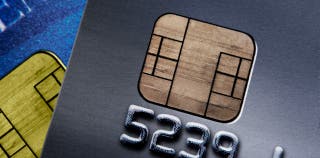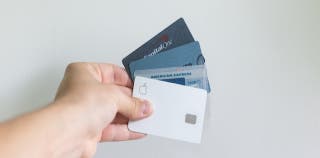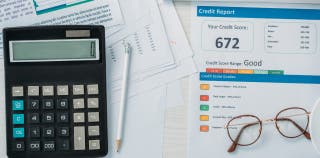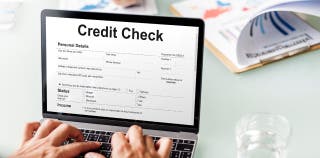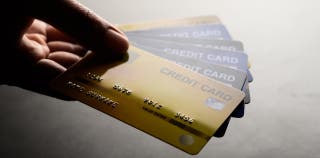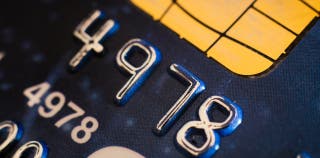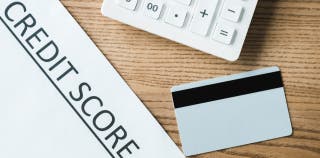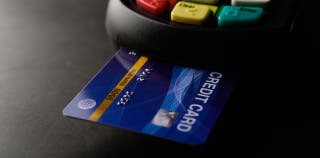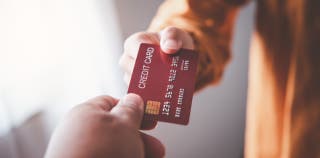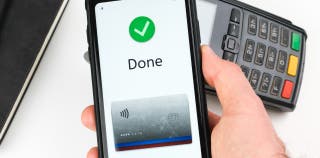
- Main menu
-
Travel Insurance
Insurance TypeMedical RelatedBy Location
-
Pet Insurance
Insurance TypePet Insurance Reviews
- Paw Protect Review
- Spot Pet Insurance Review
- Embrace Pet Insurance Review
- Healthy Paws Pet Insurance Review
- Pets Best Insurance Review
- Lemonade Pet Insurance Review
- Pumpkin Pet Insurance Review
- Fetch Pet Insurance Review
- Figo Pet Insurance Review
- CarePlus by Chewy Review
- MetLife Pet Insurance Review
-
Business Insurance
Top CoveragesNiche CoveragesCompare Business Insurance: COMPARE PLANS
-
Credit Cards
Best Credit Cards by Type
- Best Credit Cards of 2024
- Best Credit Card Sign-Up Bonuses
- Best Instant Approval Credit Cards
- Best Cash Back Credit Cards
- Best Rewards Credit Cards
- Best Credit Cards for Bad Credit
- Best Balance Transfer Credit Cards
- Best College Student Credit Cards
- Best 0% APR Credit Cards
- Best First Credit Cards
- Best No Annual Fee Cards
- Best Travel Credit Cards
- Best Hotel Credit Cards
Best Credit Cards by IssuerCredit Card Reviews- Amex Platinum Card Review
- Amex Gold Card Review
- Amex Blue Cash Preferred Review
- Amex Blue Cash Everyday Review
- Capital One Venture Card Review
- Capital One Venture X Card Review
- Capital One SavorOne Card Review
- Capital One Quicksilver Card Review
- Chase Sapphire Reserve Review
- Chase Sapphire Preferred Review
- United Explorer Review
- United Club Infinite Review
Credit Card Comparisons- Amex Gold vs. Platinum
- Amex Platinum vs. Chase Sapphire Reserve
- Capital One Venture vs. Venture X
- Capital One Venture X vs. Chase Sapphire Reserve
- Capital One SavorOne vs. Quicksilver
- Chase Sapphire Preferred vs. Capital One Venture
- Chase Sapphire Preferred vs. Amex Gold
- Delta Reserve vs. Amex Platinum
- Chase Sapphire Preferred vs. Reserve
Credit Card Resources- How to Get Amex Pre-Approval
- Amex Travel Insurance Explained
- Chase Sapphire Travel Insurance Guide
- Chase Pay Yourself Back
- CLEAR vs. TSA PreCheck
- Global Entry vs. TSA Precheck
- Costco Payment Methods
- Chase Ultimate Rewards Guide
- Capital One Rewards Guide
- Amex Membership Rewards Guide
- All Credit Card Guides
Use CardMatch to find the perfect credit card GET MATCHED -
Savings Accounts
Savings Interest Rates by Issuer
- Raisin (SaveBetter) Interest Rates
- Citibank Savings Account Interest Rate
- Capital One Savings Account Interest Rate
- American Express Savings Account Interest Rate
- Western Alliance Savings Account Interest Rate
- Barclays Savings Account Interest Rate
- Discover Savings Account Interest Rate
- Chase Savings Account Interest Rate
- U.S. Bank Savings Account Interest Rate
- Marcus Savings Account Interest Rate
- Synchrony Bank Savings Account Interest Rate
- Ally Savings Account Interest Rate
- Bank of America Savings Account Interest Rate
- Wells Fargo Savings Account Interest Rates
- SoFi Savings Account Interest Rate
- UFB Direct Savings Account Interest Rate
Best Savings AccountsSavings Calculators -
Checking Accounts
Best Checking AccountsChecking Accounts ReviewsCompare Checking Accounts: COMPARE
-
Money Market Accounts
Compare Money Market Accounts
- CDs
- Personal Loans


What Is a Charge-off & How Can I Remove One from My Credit?
Featured partner offers
Advertiser DisclosureCapital One Platinum Secured Credit Card
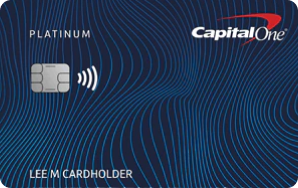
Capital One Quicksilver Secured Cash Rewards Credit Card
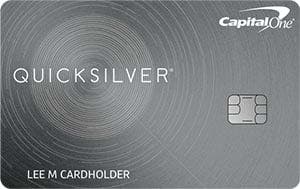
OpenSky® Plus Secured Visa® Credit Card
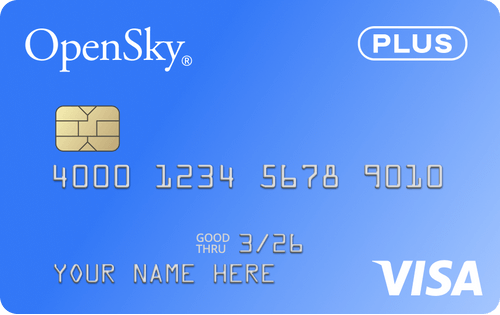
How do charge-offs occur?
Charge-offs occur when you are at least 120 days late paying a credit card bill or another debt you owe. This action means the credit card company or another lender is writing off your unpaid debt as a loss, and that they are closing the account permanently so no future charges can occur.
It’s also worth noting that charge-offs can occur even if you’re making payments on your account in an effort to get up-to-date. This typically happens when you’re making payments but they’re not sufficient to keep up with the minimum monthly payment amount required. Your account could also be charged-off automatically if you file for bankruptcy and your creditor receives notice.
Impacts of charge-offs on your credit reports
Note that you’ll see damage to your credit score when you have a bad debt that becomes a charge-off, but that the impact will actually come into play long before you get to that point. Since your payment history is the most important factor used to determine your credit score with the FICO and VantageScore scoring models, late payments and delinquency reported to the credit bureaus will cause considerable harm to your credit score first.
Your late payments will continue to damage your credit score as they are reported to the credit reporting agencies every month. If your lender and the collection agency or debt buyer reports to the three credit bureaus, you’ll eventually see a charge-off status noted in your reports for the unsatisfied debt.
That said, it’s worth noting that the impact on your credit score may be felt with one credit bureau (or a few) but not all of them. That’s because your lender and the collection agency may only report to one or two of the credit bureaus and not all three.
Can you remove charge offs from your credit report?
Like other negative items and reporting, a charge-off can stay on your credit reports for up to seven years from the date of the first missed payment. Worse, paying off a past due account will not remove the charge-off from your credit reports before this limitation is up.
In fact, paying off a past due debt will only update the status of the account. The charge-off will be listed on your credit reports as part of your credit history until it falls off automatically.
Eventually though, a charge-off or an amount in a collection account that is settled will be reported as paid by the lender, the collection agency or the debt buyer. This means that, even if this negative item remains on your credit reports, the impact on your credit score will likely lessen depending on the credit scoring model in use.
How to remove charge offs from a credit report
According to Experian, borrowers with unpaid debts that are charged-off are still legally required to pay them. This is true whether the original creditor still owns the debt, or if they have sold the debt to a collection agency or another type of debt collector.
That said, there are some steps borrowers can take to have a charged-off account removed from their account, or to at least diminish the effects of the negative item.
- Step 1: Determine who owns the debt. Find out whether your original creditor still owns the debt, or if they have already transferred the debt to a collection agency or another type of debt collector.
- Step 2: Contact the current owner of the debt to negotiate a payment plan or debt settlement. Reach out to the owner of the debt to find out if a payment plan can be set up. You can also inquire about settling the debt for less than you owe.
- Step 3: Request a “pay for delete.” A pay-for-delete arrangement works exactly how it sounds, but you’ll have to negotiate this with your creditor and it’s not guaranteed. Basically, you agree to pay a cash settlement to have the charge-off removed from your credit report.
- Step 4: Get your agreement in writing. Whatever you’re able to negotiate with your creditor, make sure you get the agreement in writing. This way, you’ll have proof of the agreed upon arrangement if something goes wrong.
Outside of these steps, you can also dispute charge-offs within your credit reports with the three credit bureaus — Experian, Equifax, and TransUnion. However, the Consumer Financial Protection Bureau (CFPB) says you typically cannot have negative information removed from your credit report if it’s accurate.
 Compare Cards
Compare Cards
How to bounce back from a charge-off on your reports
If you wind up with a charge-off account because you’re more than 120 days late paying a credit card charge, a car loan, or any other debt, there’s not a lot you can do other than attempt to resolve it. You can negotiate a debt settlement agreement with the lender if they are willing to do so, but you may also be able to set up a payment plan. Either way, the charge-off will likely remain on your credit report for up to seven years from the delinquency date — the same length of time Chapter 13 bankruptcy stays on your credit reports.
That said, you can still take steps to treat your credit with better care in the future. For example, you can:
- Make sure to pay all credit card debts and other bills early or on time
- Start using a monthly budget that makes it easier to track bills and payments
- Use various financial products to improve your credit score, including secured credit cards and credit builder loans
Whatever you do, make sure you’re never in the position to deal with a charge-off again. Over time, charge-offs on your credit report will have less of an impact on your credit score, and thus, your life. With enough time and responsible credit use, damage to your credit score resulting from a charge-off will even cease completely.
Should you pay off a charge-off?
You can pay off outstanding debts that have been charged-off by creditors, but you don’t necessarily have to. Just keep in mind that negative information on your credit reports like charge-offs and late payments can stay there for up to seven years. Also note that not paying off unpaid debts will have more of a negative impact on your credit than they will if you resolve them with a payment plan or a debt settlement agreement.
Generally speaking, you should pay off a charge-off if it’s legitimate since you are legally responsible for repaying the debt. After all, letting an unpaid debt that is charged off linger on your credit reports could significantly impair your ability to qualify for a car loan, a credit card, a personal loan, or a mortgage. Not only that, but paying off an outstanding debt helps you avoid being sued for non-payment, plus interest stops accruing on the unpaid balance.
However, charge-offs on your credit report that are errors should be disputed with the three credit bureaus and the company reporting the information.
What you should (and shouldn’t) do when you have a charge-off account
If you have an outstanding debt that is already late, you should expect the debt to be charged-off by the original creditor somewhere between 120 and 180 days. But, what should you do at that point? The chart below explains:
| Charge-Off Accounts: What to Do | Charge-Off Accounts: What Not to Do |
|---|---|
| Contact the original lender or the collection agency to inquire about your next best steps. | Do not ignore the debt and expect it to go away on its own. |
| Determine whether you can pay off the unpaid debt with a payment plan or single cash payment. | Do not let the debt continue to accrue interest over time. |
| Reach an agreement with the creditor that minimizes damage to your credit score. | Do not leave the charge-off on your credit reports without action on your part. |
| Improve your credit score over time with responsible credit use, then reap the benefits. | Do not pay higher interest rates and more fees each time you go to borrow. |
How to avoid charge-offs
When it comes to dealing with unresolved accounts that remain unpaid, your best bet is avoiding the situation altogether. In fact, you should do your best to pay all your bills early or on time, even if you can only make the minimum monthly payment.
If you need help forming a plan that helps you keep up with your monthly bills and improves your credit over time, speaking with a credit counselor can help. Most credit counselors offer a free consultation, and they can help you get on track with bills and learn to budget your money so you can avoid bad credit and all the havoc it causes.
At the very least, sit down to write out a monthly budget or spending plan that helps you remember which bills you have and when each one is due. Avoiding late payments is considerably easier when you have some sort of plan in place, yet only you can make this happen.
Glossary of terms
Charge-off: A charge-off takes place when a creditor writes off an unpaid debt after the borrower hasn’t made payments for 120 to 180 days.
Credit repair company: Credit repair companies work with creditors to negotiate lower interest rates and settlements on behalf of their clients.
Credit report: A credit report is an up-to-date reporting of a consumer’s credit movements, including their payment history, balances owed, and more.
Credit score: Your credit score is a three-digit number that represents your overall credit health.
Debt collection agency: Debt collection agencies are companies that try to collect unpaid debts from borrowers.
Delinquency: Being one month late (or later) on a credit card bill or other debt means you are delinquent.
Late payment: The term “late payment” is used to describe any payment on a bill that is paid after its due date.
 Compare Cards
Compare Cards
FAQ - Charge off on credit report
How to remove a charge-off without paying
The only way to remove a charge-off from your credit report without paying is to wait until it expires from your credit reports. After seven years, a charge-off will disappear from your credit report automatically. If waiting seven years is not an option for you, try to speak to the company that placed the charge-off on your account and negotiate a repayment plan. Repaying bit-by-bit can help rebuild your credit score.
About the Author

Holly D. Johnson is an award-winning personal finance writer who covers topics like insurance, investing, credit and family finance. As a leading voice in the travel and loyalty space, Johnson has traveled with her family to more than 50 countries over the last decade.
The author has also written extensively on the power of household budgeting, and she even co-authored a book on the topic. Zero Down Your Debt: Reclaim Your Income and Build a Life You’ll Love was originally published in 2017, and it teaches families how to use zero-sum budgeting to reach their financial goals. She is also the co-owner and founder of the family finance and travel website, ClubThrifty.com.
Johnson’s 10+ years of writing have focused on helping families make important financial decisions at each stage of their lives. The author also applies the financial principles she teaches to her own life, and she is currently on track to retire in her late 40’s with her partner. She currently lives in Central Indiana with her husband and children, and she is a regular contributor for Bankrate, CNN, Forbes, U.S. News and World Report Travel and many other notable publications.
Explore related articles by topic
* Opinions expressed here are those of the LA Times Compare Cards Team and have not been reviewed or approved by any advertiser or entities included within this content. See our editorial policy for more details.
All products or services are presented in this content without warranty. The information, including card details such as rates and fees, is accurate at the time of publish. Please visit each bank's website directly for the most current information.
Policy Details
LA Times Compare is committed to helping you compare products and services in a safe and helpful manner. Our goal is to help you make sound financial decisions and confidently choose your next credit card.
We work to ensure that the information and advice we offer on our website is objective, unbiased, verifiable, easy to understand for all audiences, and free of charge to our users. We don’t feature all products and services available on the market but provide a wide range of options from top providers offered through Bankrate. Bankrate has partnerships with issuers including, but not limited to, American Express, Bank of America, Capital One, Chase, Citi and Discover.
View Bankrate’s privacy policy.
We can offer our services thanks to partners that compensate us. This may affect which products we write about and where and how product offers appear on our website – such as the order in which they appear. This does not affect our ability to offer unbiased reviews and information about these products; all partner offers are clearly marked. Given our collaboration with top providers, it’s important to note that our partners are not involved in deciding the order in which brands and products appear. We leave this to our expert freelance writers who review and rate each product independently.
At LA Times Compare, our mission is to help our readers reach their financial goals by making smarter choices. As such, we follow stringent editorial guidelines to ensure we offer accurate, fact-checked and unbiased information that aligns with the needs of the Los Angeles Times audience. Learn how we are compensated by our partners.





















